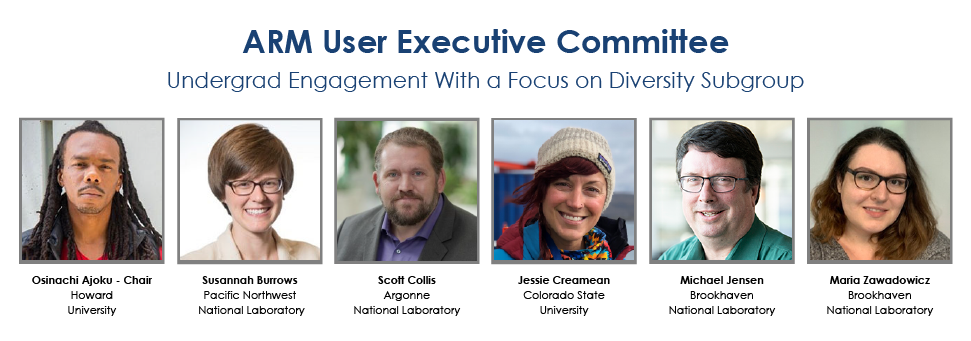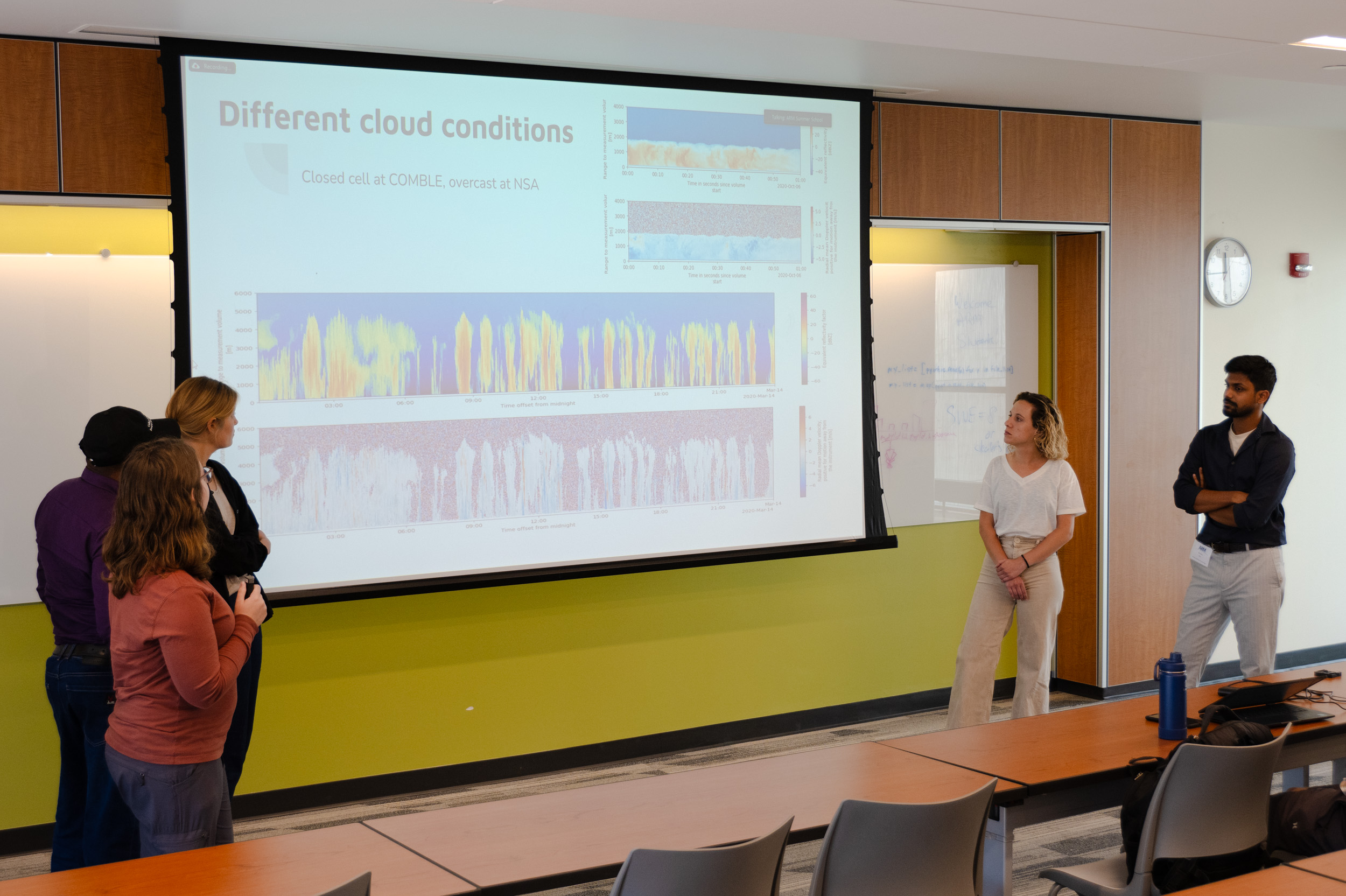From the User Executive Committee (UEC) Subgroup Chairs: June 2024
Published: 21 June 2024
Editor’s note: Members of ARM’s User Executive Committee (UEC) participate in subgroups that aim to help broaden community outreach. In a four-part series of blogs, each subgroup chair during the 2023–2024 UEC term will introduce their subgroup, share their subgroup’s ideas and recommendations to ARM, and ways in which the ARM community can engage with subgroup members. Osinachi Ajoku shares an update from the Undergraduate Engagement with a Focus on Diversity (UEFD) subgroup.
Established in early 2021, the UEFD subgroup is tasked with assessing opportunities for undergraduate students, especially from underrepresented groups, to engage with ARM and related research groups. Our subgroup consists of six UEC members from two universities and three DOE national laboratories.

In recent years, DOE has announced funding for new training and research opportunities such as Reaching a New Energy Sciences Workforce (RENEW), Funding for Accelerated and Inclusive Research (FAIR), and Climate Resilience Centers (CRC). This is in addition to DOE’s Office of Workforce Development for Teachers and Scientists (WDTS), which supports the following programs: Science Undergraduate Laboratory Internships (SULI), Community College Internships (CCI), Office of Science Graduate Student Research (SCGSR), and the Visiting Faculty Program (VFP). Many members of the ARM community have gained valuable experience through one of these programs as a participant or mentor.

ARM itself has established new opportunities for students and early career scientists by providing grants to support conference travel or sponsoring summer schools or training events. For example, ARM just held an open science summer school in Cleveland, Ohio, for 23 participants ranging from undergraduates to postdoctoral researchers. During the week, students learned new techniques to compare ARM data with high-resolution model output and gain new insight into a range of atmospheric processes.
UEFD subgroup member Scott Collis, who is also an ARM workforce development coordinator, was one of the summer school’s organizers.
The ARM community has a lot of crossover with DOE’s Atmospheric System Research (ASR) program. Many ASR-funded scientists are working with students from various backgrounds as instructors, advisors, mentors, and/or research collaborators. The UEC, and the UEFD subgroup in particular, wants to connect with these students to help break down any barriers they might encounter in accessing ARM resources and becoming a part of the community. The UEFD subgroup successfully worked to bring invited speakers to the 2022 and 2023 joint ARM/ASR PI meetings to discuss diversity, equity, and inclusion (DEI) topics, and we want to do more in this space.
Recommendations to ARM
A recent report summarizes discussions and outcomes from the UEC’s October 2023 in-person/virtual meeting. During that meeting, the UEFD subgroup identified new activities that ARM could undertake to further engage undergraduates, including:
- development of a listserv to solicit engagement from the undergraduate community
- development of a methodology to measure undergraduate knowledge of DOE programs
- recruitment and outreach during the annual meetings of the American Geophysical Union (AGU), American Meteorological Society (AMS), and Society for Advancement of Chicanos/Hispanics and Native Americans in Science (SACNAS)
- creation (or resurrection) of an “Ask a Scientist” program
- consideration to fund a modest amount of undergraduate-only research opportunities that piggyback onto currently funded ASR projects.
Discussions also extended to more general DEI issues, particularly those associated with inclusion and fostering a respectful environment during fieldwork. In its code of conduct, ARM “sets minimum expectations for personal and professional behavior while working at ARM observatories or while engaging in ARM cross-institutional activities.”
Recommendations from the UEFD subgroup—some of which ARM is now implementing—include offering and requiring individual and collective active bystander training before ARM field deployments and developing a clearly documented procedure to report incidents that occur during field campaigns, meetings, and workshops.
Engage With Us
There is no better way for a student to learn how a field deployment works than to jump right in and get involved. Students are helping with preparations for ARM’s Coast-Urban-Rural Atmospheric Gradient Experiment (CoURAGE), which starts this December in the Baltimore, Maryland, area, and we expect more will participate once the campaign is underway. We are also excited about the potential for student involvement once ARM’s Bankhead National Forest atmospheric observatory is up and running in Alabama. Engagement efforts with universities in the area are ongoing.
If you have other ideas on how ARM can connect with undergraduates, especially from underrepresented groups including Hispanic-serving institutions (HSIs) and minority-serving institutions (MSIs), we want to hear from you.
Keep up with the Atmospheric Observer
Updates on ARM news, events, and opportunities delivered to your inbox
ARM User Profile
ARM welcomes users from all institutions and nations. A free ARM user account is needed to access ARM data.


















